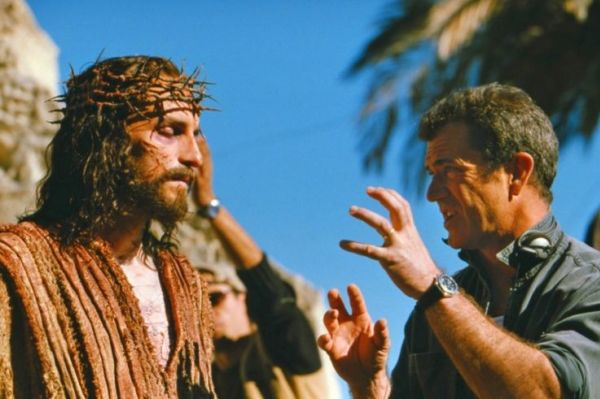Four Things We Can Learn from Billy Graham's Life and Ministry
With Billy Graham's increasingly frail health being in the news lately, I was reminiscing about the only time I ever heard him preach at a rally.
On the turf of the Rose Bowl in Pasadena, California, I watched as the white-haired evangelist, then 86, was helped from his walker to the pulpit and then, in a voice raspy with age, delivered a quintessential Gospel sermon.
His message was simply about the Cross. He talked about sin, he talked about repentance, he talked about forgiveness and grace and eternal life. And at the end of the evening, some 2,500 people streamed forward to find new hope through Jesus.
He was no longer "Machine Gun Graham," who as a young evangelist could speak at 240 words a minute. And his sermon was much shorter than when his career was catapulted into the national spotlight nearly 55 years earlier. Still, the message was essentially unchanged over the decades – and even from two millennia ago.
As I zipped my jacket against the cool evening air and watched transfixed as Graham preached just twenty-five yards away, I pondered what made him so universally admired and uncannily effective.
When people are asked to rank various professions for honesty and integrity, evangelists generally finish among the mobsters and drug dealers. But according to the Gallup Poll, Graham has been listed dozens of times among the ten most admired men in the world.
Why? What lessons can we glean from a life well-lived? Four qualities, I believe, have helped establish Graham as a trustworthy messenger of the Gospel – and I believe we all can learn from these traits that he has so powerfully exhibited.
First, he has integrity. The apostle Paul told his sidekick Timothy in 1 Timothy 4:16, "Watch your life and your teachings closely." Both are important. And Graham has been respected even in an increasingly skeptical world because his behavior has been consistent with his beliefs and his character has been congruent with his creed.
Said one theologian in analyzing a Graham sermon: "One thing stood out – the man was genuine. He believed what he said."
When an investigative reporter once tried to dig up dirt to destroy Graham, he came up empty. "He is man without shadows," the journalist concluded.
From the outset, Graham was determined to sidestep the traps that had discredited some earlier evangelists. He avoided aggressive fund-raising, loose financial accountability, sexual temptations, emotionalism and anti-intellectualism. What's more, even before the Civil Rights movement, he insisted his rallies be integrated, because racism violates the teachings of Jesus.
It was abundantly clear that the crowd surrounding Graham at the Rose Bowl that night held him in high regard and listened to his words with respect. In short, he has modeled integrity – and that attracts people.
Second, he has been humble. Graham has always seen himself as a servant of God, recognizing that it was the Holy Spirit, not Graham, who was responsible for the evangelistic results.
Even the night I saw him preach, he made sure that the people walking forward knew what they were doing. "You're not coming to me, you're coming to Jesus," he explained.
Once, during disheartening times in England, Graham read passages from the Bible as he ministered to Sir Winston Churchill. Afterward, Churchill said, "I thank you. You have given an old man a renewal of faith for the future."
But Graham explained later, "I hadn't, but the Bible had." He was humble enough to give credit where credit was due.
When he made mistakes – as he said he surely did during his long career – he has been humble enough to admit them and take full responsibility.
As Jesus said in Luke 14:11: "Everyone who exalts himself will be humbled, and he who humbles himself will be exalted."
Third, he has compassion. Graham hasn't told people about Christ simply because he loves the spotlight of a large stadium, but because he loves God and he loves people.
I observed firsthand the gentle way he invited everyone to seriously consider Jesus. It was as if we were all gathered around a loving grandfather as he spoke directly to each individual in the Rose Bowl.
"In a society that has been nurtured on the antics of the anti-hero and rebel," said one biographer, "it may be time to hear from a person who offers genuine care and affection. And it seems that the staying power of this Southern preacher is to be written in his acts of love and concern."
Often, these acts were quiet and went unnoticed by the public, as he visited the sick in hospitals and helped the elderly and poor.
Even at the height of his career, when he was regularly speaking to packed stadiums, Graham often spent his weekends quietly visiting tiny churches in the back hills of North Carolina, talking about Christ to congregations of ten or twenty families.
Why? Because he had compassion for them – and people are drawn to that.
Fourth, he has stood firmly for God. In a day of moral relativism, when many politicians govern with one eye on the latest polls, Graham has remained solidly anchored to God. He frequently pointed to the Bible on his pulpit and said, "All the world's answers are right here in this book."
Let's face it – standing firm for anything is a big deal these days. And when a person stands resolute in a wishy-washy world by solidly building his life on the inerrant Word of God, people take notice.
I was struck that night to see how feebly he moved and how softly he spoke, and yet his faith and witness were as solid as a rock. By spending a lifetime watching his life and doctrine closely, Graham never became an impediment to the power of the Gospel, which flowed through him and into the hearts and souls of his listeners.
Evangelistic approaches have evolved since Graham first began preaching under giant tents. Rallies remain an effective mode of outreach throughout the world, but churches have been innovating new ways to reach people with the Gospel in an increasingly postmodern environment. And that's good.
Yet one thing remains unchanged: both our life and our teachings are still important.
Thanks, Billy, for being a beacon for us all.





















